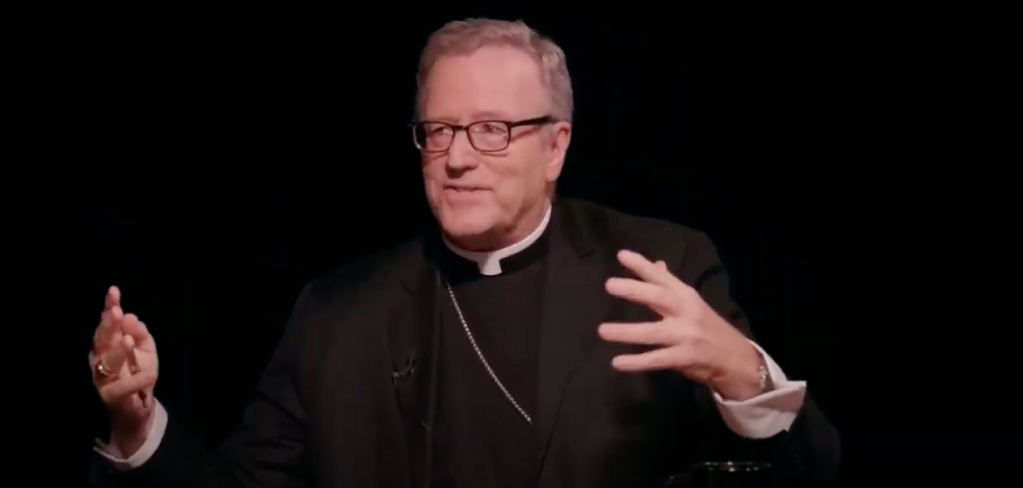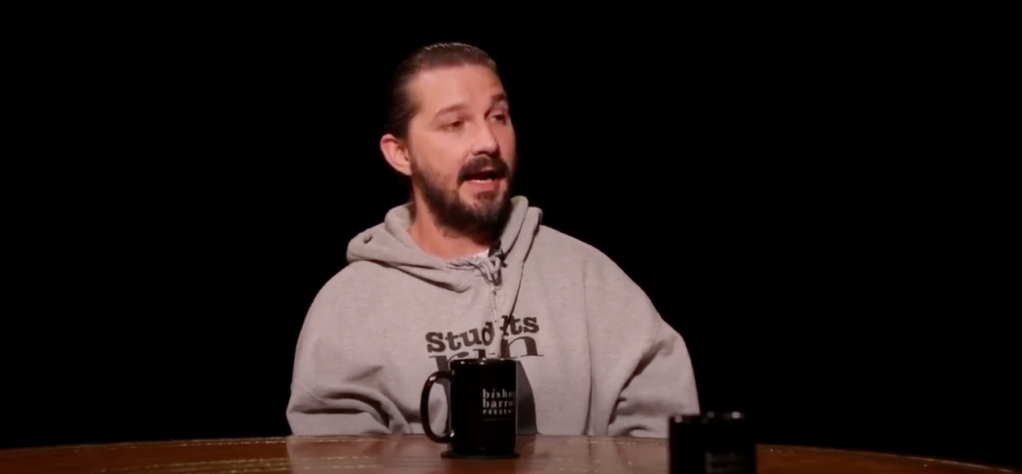Shia LaBeouf converts to Catholicism after ‘Padre Pio’ movie
Actor Shia LaBeouf said he converted to Christianity while shooting his upcoming film “Padre Pio” and has become a member of the Roman Catholic Church.
LaBeouf revealed his conversion in an interview released Thursday with Word on Fire Catholic Ministries’ Bishop Robert Barron.
The actor first engaged with the church while living with a monastery of Franciscan Capuchin friars in order to better understand the late mystic St. Padre Pio, whom LaBeouf portrays in the upcoming movie.
Heading into the project, LaBeouf said that he was at the darkest point in his life after a series of public scandals. He was drawn to spirituality and joined a variety of faith groups to find meaning, fighting thoughts of helplessness and suicide.
“I had a gun on the table. I was outta here,” Shia recalled in the nearly 90-minute interview. “I didn’t want to be alive anymore when all this happened. Shame like I had never experienced before — the kind of shame that you forget how to breathe. You don’t know where to go. You can’t go outside and get like, a taco.”
“But I was also in this deep desire to hold on,” he added.
The actor described finding faith during his research by surprise, saying that his mindset going into the film was focused on his career, not God.
“The reach-out had happened. I was already there, I had nowhere to go. This was the last stop on the train. There was nowhere else to go — in every sense,” LaBeouf said in the interview.
He continued, “I know now that God was using my ego to draw me to Him. Drawing me away from worldly desires. It was all happening simultaneously. But there would have been no impetus for me to get in my car, drive up [to the monastery] if I didn’t think, ‘Oh, I’m gonna save my career.’”
While researching and performing the role, however, LaBeouf said he felt “tricked” by God.
“And when I got here, a switch happened. It was like Three-Card Monte. It was like someone tricked me into it, it felt like,” the actor recounted. “Not in a bad way. In a way that I couldn’t see it. I was so close to it that I couldn’t see it. I see it differently now that time has passed.”
LaBeouf described talking through his feelings and learning about the Christian understanding of sin and forgiveness as key to pulling him out of a dark time in his life.
The actor said that he did not feel worthy of pursuing piety of any kind until he met others who had struggled morally in ways he’d never seen before and felt safe.
Last year, LaBeouf was charged with two misdemeanors — petty theft and battery — after he stole a man’s hat in a fight that turned physical. Just a couple of months later, his ex-girlfriend and pop star FKA Twigs sued him over his alleged abusive behavior.
Another ex-girlfriend was listed in the lawsuit and also claimed LaBeouf was abusive toward her.
“It was seeing other people who have sinned beyond anything I could ever conceptualize also being found in Christ that made me feel like, ‘Oh, that gives me hope,’” LaBeouf told the bishop. “I started hearing experiences of other depraved people who had found their way in this, and it made me feel like I had permission.”

LaBeouf plays the titular character in “Padre Pio,” a film helmed by Abel Ferrara exploring the life of the Franciscan Capuchin mystic.
Padre Pio was born Francesco Forgione in southern Italy in 1887. He became famous for showing stigmata, or crucifixion wounds like those on the body of Jesus Christ. He died in 1968 at the age of 81, was beatified by Pope John Paul II in 1999 and then canonized in 2002. Ferrara previously made a short documentary on the religious figure.
Despite intense scrutiny from skeptics and members of the medical community, no conclusive explanation has been given for Pio’s stigmata, which allegedly appeared and healed throughout his life.
LaBeouf felt immense pressure as he learned more about Pio and spoke to other Franciscan Capuchin friars, who he says begged him, “Don’t get it wrong. He’s the only one we have.”
The actor stressed throughout the interview that despite his intense immersion, he is still very new to the faith and not an expert on different aspects of the religion. When his conversion started, LaBeouf and the friars were not even sure if he had ever been baptized.
“I didn’t know I was baptized. I had been baptized earlier in my life and didn’t even remember it. My uncle had baptized me in the [Trinitarian formula],” he explained.
LaBeouf told Barron that the traditional form of the Catholic mass — celebrated in Latin — was key in both his conversion and his performance as an actor playing Pio.

When Ferrara asked LaBeouf to use an Italian accent while acting, he refused. The movie had become too personal and too important to wear a “mask” as LaBeouf described it to Barron.
“While we were practicing Latin Mass, I was having genuine emotional experiences, and aside from the fact that as a Neapolitan speaker, [Pio’s] accent wouldn’t have matched Italian anyway, but it felt like that would have taken me out of this thing that felt very personal,” LaBeouf explained.
Barron, of the Dioceses of Winona-Rochester, 62, is the most widely-followed online Catholic cleric in the country, aside Pope Francis himself.
“It was a delight to sit down for an in-depth conversation with Shia LaBeouf, one of the most compelling actors of his generation,” Barron said of his time with LaBeouf. “Shia is also a man with a fascinating story to tell regarding his spiritual journey. I think that anyone who is struggling to find the way to God will be interested in what he has to say.”
While his episcopal office concerns his parishes in Minnesota — where he is already widely known — Barron’s public influence stretches around the world via his books, videos, radio shows and documentaries with his Word on Fire ministries.
Fox News reached out to LaBeouf’s management and PR representatives but did not receive a response.
Read the full article Here


